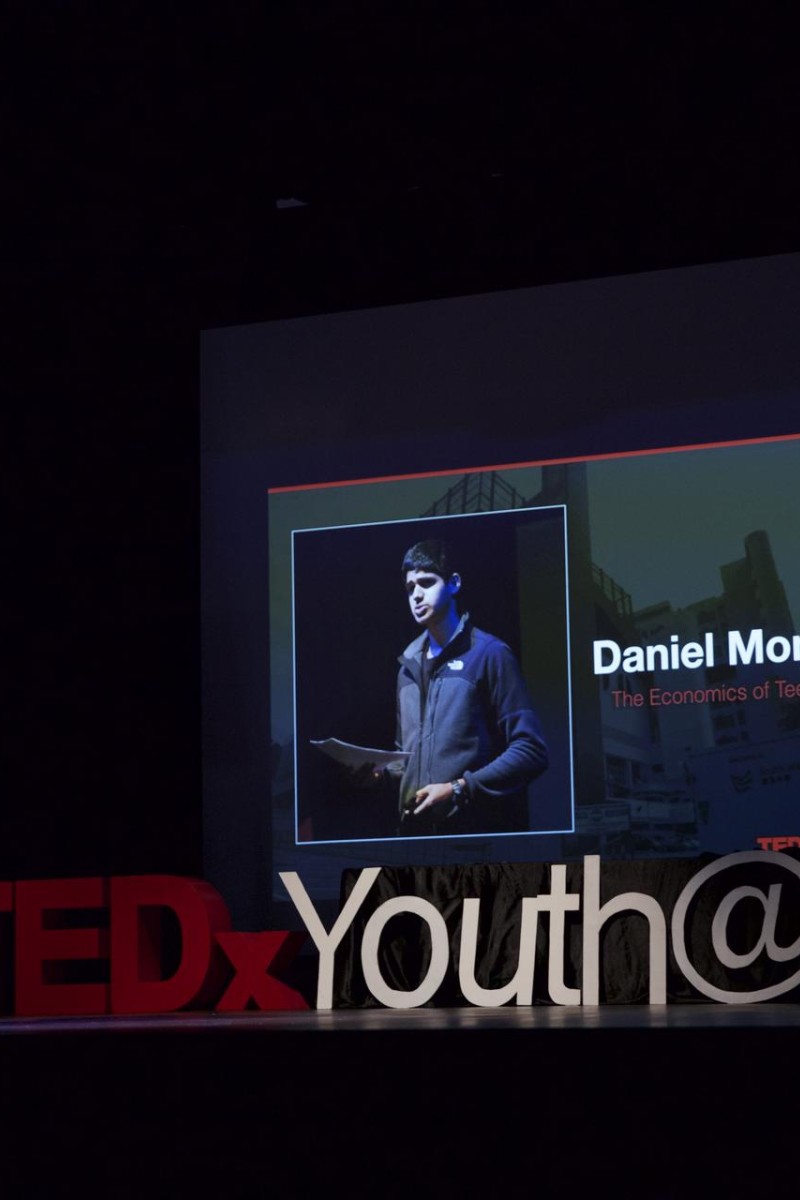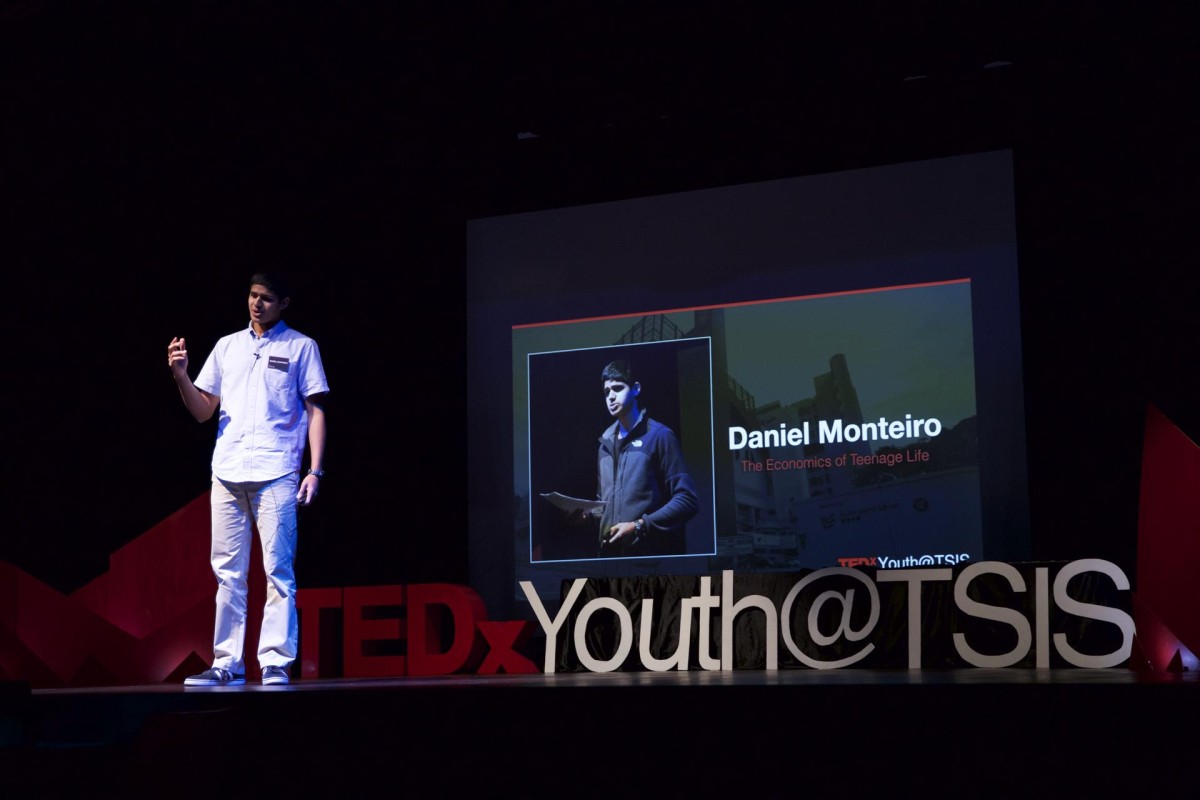
At a recent TEDx talk in Hong Kong, junior reporter Anirudh Kannan found out from his schoolmate that economics affects everything

Most of us find it hard to study when we know our favourite TV show is about to start. But why is this?
At the TEDxYouth@TSIS held on February 10 at South Island School, SIS student and Young Post blogger Daniel Monteiro hoped to answer that question, and explain some of the mystery behind procrastination.
The theme of the event was "The Other Side", giving speakers the opportunity to present an alternative perspective on something, and Daniel certainly opened his speech with something the audience wasn't expecting. "I'm going to show you that economics explains every decision we make," said Daniel.
He had ensured that he not only had the audience's attention, but he had their imaginations, too. "I know you're stunned. I was, too, when I found out," he continued.
According to Daniel, our generation focuses on things like career, social circles and basic character. He summarised the audience's bemusement with one question: "How could a subject meant for bankers show you the way?"
Daniel said he would compare conventional economic advice on two key issues, procrastination and motivation, to answer this question.
Daniel explained that the economic term "hyperbolic discounting" can be applied to procrastination. This means that people prefer to do things that come with immediate rewards, such as watching TV or playing a game, rather than things with distant or longer-term rewards, such as studying. In this way, people "discount" the longer-term rewards in favour of the short-term rewards, because of the ease of signing up for work compared to the difficulty of actually doing it.
For example, telling yourself you will eat better and exercise more is easy, but most people will choose the immediate gratification of chocolate cake after dinner rather than the long-term goal of being healthier.
The mental state at the time of deciding on these long-term goals, said Daniel, is something known as the "blue line" - thinking of the future and delaying gratification, thus enabling progress and focus. The "red line" is the mental state of the common procrastinator - the state of mind where excuses are the order of the day and uncompleted work seems endless and unbelievably difficult.
"The economists' advice? Stay on the blue line," suggested Daniel. It sounds simple, but how can we stick to our resolutions? It's all about keeping your goals in mind, said Daniel.
Although this sounds straightforward enough, ignoring all other advice and focusing on this completely can be the difference between a blue-line worker and a red-line worker.
His next solution related to motivation. Daniel began eloquently, referring back to procrastination: "If procrastination is the thief of time, then motivation is the goldmine of productivity."
He added that those who jump out of bed at 6am are not crazy - they've just found whatever drives them and use it as internal motivation. That's their blue line.
The economics principle of marginal decision making can be applied to motivation. This is a process where people compare the extra work needed for a task with the extra benefits gained from doing the task. By weighing up the pros and cons of every task, just like businesses do when deciding what to invest in, we can motivate ourselves to do more. We can do this by increasing the marginal benefits and decreasing the marginal costs. The benefits might be getting a good report card, or getting a place at university. When the benefits are greater than the cost, we are motivated to do more.
His last piece of advice was simple: "Get off your smartphones, find a quiet moment and think." He advised us to think about what matters to us and to think about ourselves and our character.
TED and TEDx revolve around the idea that there are ideas worth spreading everywhere, and their goal is to spread them. Daniel referenced this at the end of his speech by saying: "I believe economics can improve our decisions on a personal, national, and global level. I believe that is an idea worth spreading because we're the ones who'll be voting and shaping society in the future."
Silence turned into loud applause, suggesting the audience were eager to share his idea.